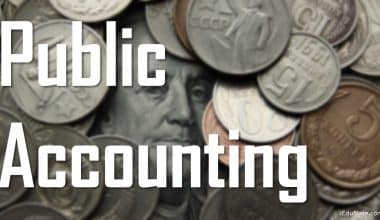What are the highest Paying Career in Finance and Accounting.
There exists an unlimited list when it comes to finding the highest-paying career in finance and accounting, and one thing, however, is knowing which to branch into when starting.
Our focus in this article today is guiding our readers through the various highest paying careers in accounting and finance, plus helpful advice to navigate your way in this ever-evolving field. Let’s take a look at the heading below.
Highest Paying Careers in Finance
From an actuary to an investment manager, personal finance coach, and many options, one can never go out of choice when finding the highest paying careers in finance.
Before getting into finance, there are a few things to think about if you want to be successful. Knowing if you want to major in finance and how to know if a career in finance is right for you should be at the top of your bucket list before venturing out. Taking a close look at this important point in the next section would do a lot to change your mind.
Is Finance a Good Career Path?
A good career path in finance depends on many factors. Among them are your personality and exact preference.
While they are opportunities to grow in the field of Finance, one tough spot is identifying if finance is a path the individual would want to tread before even finding the highest-paying careers in finance and accounting
The field of finance comes with a lot of prestige and opportunities for improvement, not to mention the high salary package this career offers. Anyone with a love for these perks should definitely consider a job in finance.
Finance as a course of study allows for research and theories formulation, if this aspect doesn’t seem to scare you but excited you, then it is safe to say that finance is a good career path to study.
This does not mean that one will automatically succeed in this career path, as one must have an innate aptitude for this field. If you know that a career in finance is right for you, the section below can help you out.
How do I Know If Finance is For Me?
To jump on the bandwagon of those who call themselves finance gurus, that is, to join the list of the highest-paying careers in finance, self-evaluation is an important recipe.
If any of these traits outlined below ring with your personality, then a career in finance is your best fit.
#1. Analytical Mindset
Most finance majors are known to have a high dose of analytical skills as this trait would help them assess reports, budget flaws, and everything that has to do with financial issues when they begin to work with facts and figures.
#2. Strong Mathematical aptitude
Talking about figures, one way to know if finance is really for you is to check how good your maths is now and was in college; anything short, you might want to rethink.
The major tool in the studying of finance as a course is the use of numbers, they make up the very core of the career path, and if you love how numbers work as regards financial transactions, then a career in finance is your sure bet.
#3. Attention to Details
Maybe you have been praised once for how articulate you are when noticing everything and anything within your sight; that skill could pass as the one you would need when it comes to knowing if a career in finance is for you.
Every data entered in a record requires sharp handling and strong attention to detail to avoid a double entry of the same data. Attention to detail could help you if you choose to specialize in auditing. If these traits describe you, then a career in finance is for you.
#4. Updated knowledge of Economic events
Your penchant for the latest news in finance and the economy as a teen could go a long way in helping you make the right decision when it comes to knowing if finance is for you as well as knowing the highest-paying careers In finance
To be good at finance, a strong knowledge of economic events happening around the world/ big cooperation is a must-have, as this would help in deciding financial matters to the relevant sector you have chosen to work.
#5. Helping Firms/Clients achieve Financial goals.
Another core must have to determine if a career in finance is the right fit for you is the aim behind studying this course.
Helping Firms and private individuals with their financial goals should be a top priority.
Financial analysts and other professionals at the heart of their careers aim to achieve one thing, managing and offering sound financial advice that would help to boost and improve firms and individuals for holdings.
The heartbeat of studying any course isn’t just how much such a career offers to pay, but an inherent ability for the career one has chosen. Having assessed one’s ability, the next thing to do is to check out where one fits exactly in the spectrum of that course.
The next heading would do well to elaborate on the various careers available in the field of Finance and Accounting.
Careers in Finance and Accounting
The field of finance and accounting are synonymous with only a little difference in job roles.
An accountant, as the name implies, carries out the record, storage, and report of how a business is performing, finance, on the other hand, is encompassing as it does well to assess loopholes, counterbalance infused data, and make observations on the kind of data collated.
If you choose to major in any field of finance or accounting, then the points below are a must-read to help you determine which of these courses would prick your interest; let’s take a look:
What are the Careers in Finance?
Careers in finance cover everything from an investment banker to an actuary, a portfolio manager to a quantitative analyst, and an accountant to an auditor. The list is much. A look at the job role of the careers mentioned above:
#1. Investment Banker
An investment banker’s primary duty is to assess opportunities for clients and financial institutions to generate revenues, either through venture capital, identifying the right shares to invest in, or even sourcing for funds.
The job requirements for individuals majoring in this path are a keen eye for investment opportunities and also the ability to boost an already acquired holding while still being good with statistics and figures in general.
#2. Actuary
An Actuary can be like the clairvoyant in that they assess future implications of certain financial decisions which would impact firms, individuals, and even the country’s economic situation.
This could be anything from assessing the future effects and costs incurred by an employee death to a Company to the future cost of maintaining government infrastructure projects in the event of deterioration, using mathematical models and projections.
#3. Portfolio Manager
Like an investment banker, the career path of a portfolio manager is the protection of individuals, companies, and even government shares, bonds, and treasury bills by employing best practices to keep them valuable.
Portfolio Managers tend to focus on very selected portfolios and do everything within their capacity to ensure that shares/stocks bought have a long-term appreciation. Their keen eye for identifying over-hype stocks/cryptos could go a long way in boosting the portfolio of those they work for.
#4. Quantitative Analyst
This analyst takes business projections, participation, and overall performance and formulates a mathematical model that firms/companies follow to achieve the same positive result as previous experience demands.
These professionals use statistics, machine learning, and a heavy dose of data entry to formulate mathematical models to keep businesses afloat or transformed; their job in the field of finance requires a deep knowledge of mathematics and the quantification of data.
#5. Accountant
The role of an accountant is basically to take, store and give out the account of the day-to-day running of a business, firm, or even government establishment.
They are the first point of call when it comes to handling the financial matters of any organization; their input is what other professionals in the field of finance work with in determining the growth or stagnancy of a business. As expected, a keen eye for detail and thoroughness is invaluable in this profession.
#6. Auditors
Financial auditors take input from accountants and other parties to determine the integrity of their reports/financial statements and think of them as the ombudsman of the financial sector.
In case of financial disparities, these professionals step in to rectify the financial differences between the financial statements of principal bodies versus the physical performance of their accounts. To be an auditor requires intensive years of certification and training.
How Do I start a Career in Finance?
Starting a career in finance requires that an individual has completed an entry-level certification which involves having a BSc in the field of business, Accounting, statistics, or areas relating to finance; through this, one advance in the ladder of their career.
Taking other professional exams and furthering one’s education are alternative ways to advance in the peak of a finance career; job hunting and volunteering are other great ways to add to one’s portfolio of experience, which would be times when seeking a promotion.
The long and short, however, rests in making oneself open to opportunities for advancement.
Careers in Finance Major
Aside from the list above for the careers in finance and accounting, specific majors abound for those who wish to toe the line of finance; the section beneath covers these areas those majoring in Finance solely can enjoy from the listed careers below to advance their careers
- Financial Analyst
- Investment Banking Analyst
- Personal Financial Planner or Advisor
- Financial Examiner
- Financial Portfolio Manager
The list above also tagged the five fields of finance and is further elaborated below
Five Fields of Finance
#1. Financial Analyst
Their job role, as stated earlier, requires that they have a keen eye to scrutinize data and entries made by another financial expert in the growth of the business. See here for more
#2. Investment Banking Analyst
The top dog in the profession, this role requires making healthy Investment decisions for firms and businesses alike; see here for roles
#3. Financial Planner
You can’t get it wrong with these experts; they oversee budget and other fiscal projections before they meet execution. Their job spans multinational firms, private individuals, and even government establishments.
#4. Personal Financial Planners
Are they looking for that guru that helps you keep your budget in check? Need a financial planner. They manage individual and family spending to meet up their financial target while still giving financial advice on how they can improve their cash balance. Letting a personal financial planner do the job of planning your finance is something not to miss.
As with their job role, the salary for this expert seems favorable; one look at their payment structure would tell it all.
Careers in Finance Salary
Most finance persons earn an annual salary of up to $80000-$100000 on average yearly.
However, this depends on the skill and experience level of the individual as well as demands.
The following list breaks down their salary structure as per the demand for these experts
What Jobs in Finance are in Demand?
The following are jobs in demand in 2023 and their average salary structure yearly:
Personal Financial Advisor-$95000
Financial Analyst- $95570
Investment Analyst- $78000
Auditors- $77250
Highest Paying Career in Finance and Accounting
Based on the BLS statistics, the highest paying career in finance is the job of a personal and financial advisor, as they earn a median salary of up to $94170 or more. Closely following are the financial officers and other high executive roles where they are known to earn as high as $179520 per year on average.
Conclusion
The importance of finance cannot be overstated, and for those interested in pursuing a career in finance, knowing the highest-paying careers in finance and accounting in 2023 is equally beneficial. Thankfully, this article has everything one needs to know before delving into the prestigious field of finance and accounting.






